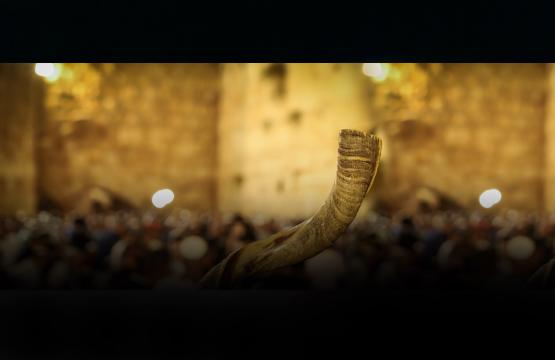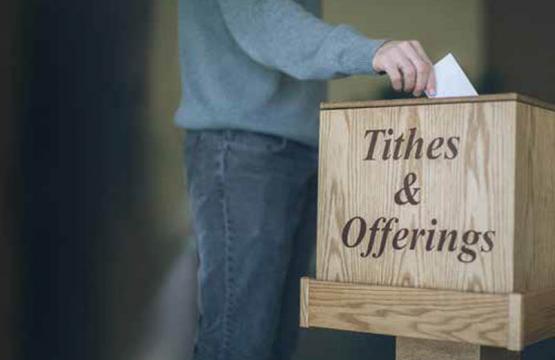
Although I grew up in a Jewish home in New York, we were not a religious family, and the Jewish community in which we lived was not religious. That meant that sometimes, on a Saturday morning, my father would get an emergency phone call.
“Abe,” the caller would say, “could you come and join us right now at the shul [synagogue]?”
You see, in Jewish tradition, to have an official public service, you need to have at least 10 men present. But on some Sabbaths, there would only be 9, including the rabbi.
So, my dad would quickly shower then hurry over to the synagogue, just to meet the necessary quorum. That’s how little religious interest there was in our community.
But when it came time for the High Holy Days, like Passover in the spring or Rosh Hashanah in the fall, the building would be packed.
In fact, the synagogue had to build an annex that seated more than 300 people. Everyone got religious at that time of the year.
For me, though, these services were a drudgery, and before I became a follower of Yeshua – when I was a drug-using hippie rock-drummer – I not only found the services boring; I found them bizarre.
Yes, in my ignorance and unbelief, I found the Prayer Book very odd, saying to myself once, “This
God must be on some kind of ego trip, wanting us to repeat all these great things about Him.”
Thank the Lord for His incredible mercy. He did not treat me as my folly deserved.
But as far as understanding the significance of these High Holy Days, I must confess that they took on no real significance to me as a new Believer.
I came to faith in a little, Italian Pentecostal church, and every day was the same to us. Sunday was no different than Monday (although we did have a Sunday morning service). Easter was no different than Memorial Day (which, of course, had no spiritual significance to us). As for the biblical (and Jewish) calendar, we hardly thought about that.
It was Jesus, Jesus, Jesus, all day, every day.
But that doesn’t mean that there is no significance to certain times of the year. That doesn’t mean that the biblical calendar has no meaning. To the contrary, Jesus brings that calendar into its fullest meaning. Through Him, our understanding is deepened.
When it comes to the Fall Holy Days, there is a sense of awe that I have; a sense of sobriety.
For a traditional Jew, it is an especially sacred time of the year, a time of soul-searching and repenting, a time of repentance and new beginnings.
In traditional Judaism, the biblical Feast of Trumpets becomes Rosh Hashanah, the New Year.
But this is not a time for partying and celebration. It is a time of accounting.
The trumpet blast represents a wake-up call. As explained by Moses Maimonides (1135–1204) in his Laws of Repentance, this is the message of the trumpet (shofar) blast:
“Wake up from your sleep, you sleepers! Arise from your slumber, you slumberers! Examine your deeds! Return to God! Remember your creator! Those of you who forget the truth in the futilities of the times and spend all year in vanity and emptiness, look into your soul, improve your ways and your deeds. Let each of you abandon his evil ways and his immoral thoughts.”
The next 10 days, from the first day of Tishrei to the 10th day, are called the Days of Awe, culminating in Yom Kippur, the Day of Atonement.
On this day, for a 25-hour period, religious Jews do a complete fast and spend most of the time in the synagogue, confessing their sins and asking for mercy, determining to turn from disobedience to obedience. And it is at this time that they believe the Lord determines whether or not to inscribe their names in the Book of Life for another year.
Obviously, as a born-again, blood-washed follower of the Messiah, I have a very different perspective on forgiveness of sins. Through Yeshua’s death and resurrection, we have been forgiven, and we walk in that reality 24/7.
When we do wrong, we turn from it and receive fresh cleansing, but we know that we have already been redeemed and that our eternal atonement has been purchased.
Still, I recognize that, in the spiritual realm, something is happening during the Fall Holy Days. Just the fact that so many Jews are crying out to God for mercy and forgiveness means that this is an opportune time for the Spirit to turn the people of Israel to Yeshua the Messiah.
And because the themes of divine judgment are in the air, there’s a sense of unusual sobriety I often feel as the season turns from summer to fall.
I’m not alone in feeling this way.
There are prophets who get their annual marching orders from the Lord at this time of the year.
There are men and women of the Spirit who sense this is a special time of the Father speaking to His children.
And there are others who simply realize that, while every moment in the Lord is sacred and holy, there are times and seasons when He speaks and acts and moves in unusual ways.
All the more, then, should we present ourselves afresh to God at this special time of the year, turning away from everything impure, renewing our hearts and minds in total devotion to the Lord, asking Him for fresh revelation and insight through His Word, and interceding for the salvation of the lost sheep of the house of Israel.
Let the people of God say amen!






